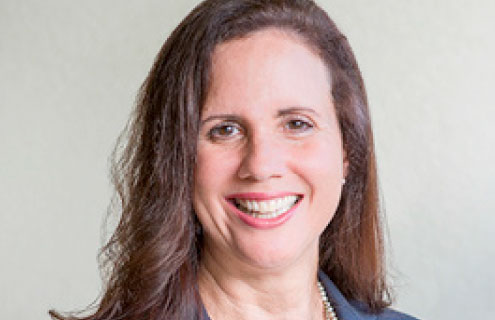London & Capital
Although ICC legislation was implemented in Barbados last year, SCCs are still leading the way, according to Lisl Lewis of London & Capital
Last year, London & Capital reported a ‘significant increase’ in demand from captives. Has this trend continued?
The global captive market is a very important one to us at London & Capital, particularly in the Caribbean and Europe. From our Caribbean office in Barbados, which we opened towards the end of 2015, we manage our Barbados and Cayman client base. Barbados has 246 captives to date, having licenced 13 new ones in 2016, while Cayman was home to 711 captives at the end of 2016.
Parent companies, primarily from the US and Canada, have been setting up captives in both locations since the 1970s, and the jurisdictions have a long history of good corporate governance and regulation.
Both Cayman and Barbados continue to grow as captive domiciles, with excellent captive insurance managers and well-qualified workforces able to provide the required underwriting, accounting, legal, actuarial and auditing services.
London & Capital has been working with captives in the region for 10 years and remains very committed to providing best-in-class discretionary investment management services to the sector. Based on the local expertise and growth in the region in general, I’m confident we’ll continue to see increased demand from captives over the coming months.
Where are you seeing the majority of captive business come from, and from what sectors?
Over the last 30 years, the majority of captive business in the Caribbean has been driven by US and Canadian companies. Historically, Canadian companies have made use of the extensive Canada-Barbados double taxation treaty to set up their self-insuring entities in Barbados, while Cayman saw more US-parent business as a result of its proximity to the mainland US. In 2010, Cayman signed a tax information exchange agreement with Canada, which has resulted in some Canadian business being domiciled there as well.
Captives in Barbados can be from just about any sector, including finance, energy, retail and healthcare. In Cayman, there is a specialisation in the healthcare sector, but there’s also a broad base of business from other sectors too.
Recently, there has been an increase in interest in insuring cyber risk in both jurisdictions, which is a reflective sign of the times.
In Barbados there has been an increase in interest in setting up captives from Latin American countries, particularly Mexico. This is driven by the implementation of a double taxation treaty between the two countries in 2010, and many captive insurance managers are now actively targeting the Latin American markets as a new source of business.
This has resulted in interest in our discretionary investment management services from Latin American captives, which we are well placed to serve with our Spanish-speaking capabilities.
Since the implementation of the ICC legislation in Barbados last year, how much interest has there been from the industry?
The incorporated cell company (ICC) legislation was implemented last year in addition to the segregated cell company (SCC) legislation, which came into effect in 2001.
At the end of 2016, there were 19 SCCs licenced by the Financial Services Commission in Barbados, and one ICC. Interest in ICCs from the industry has been slow to get off the ground and that is probably due in part to some uncertainty around costs and the administration to be done by the various government departments involved in the application and licensing process. I do think, however, that these are teething problems, that will be resolved over time.
From an industry perspective, the more pressing question may be to determine the practical advantages of the use of ICCs over to SCCs. The certainty of the use of incorporated cells instead of the contractual segregated cells was always seen to be the key advantage of the structure, but it is fair to say that the market has not rushed in to take advantage of the new legislation.
What can we expect to see from the captive insurance industry in the region this year?
Although the number of captives incorporated in the US has grown significantly in recent times, making that country the number one captive domicile in the world, the Caribbean will remain a vibrant location for captives. Each jurisdiction has established its core market and its effective business case for that market, and we expect that that will continue. One of the challenges faced globally by the industry is from the Organisation for Economic Co-operation and Development’s base erosion and profit shifting initiative.
In Barbados and Cayman, there has been a clear business rationale for the establishment of captives, coupled with very strong management and governance, for many years. We are confident that this will emerge as a competitive advantage compared to some other jurisdictions.
Over recent years we have seen that many of London & Capital’s competitors have been sceptical about the value of servicing the Caribbean market. We feel differently and see a great deal of potential in the market, as evidenced by our investment in a dedicated local office in Barbados. The Caribbean captive and institutional market has grown significantly in importance to London & Capital over the last decade and we expect this growth to continue. Currently our institutional division manages over $1 billion in assets for captive insurers, based primarily in Barbados, Cayman and Bermuda.





